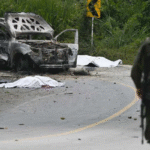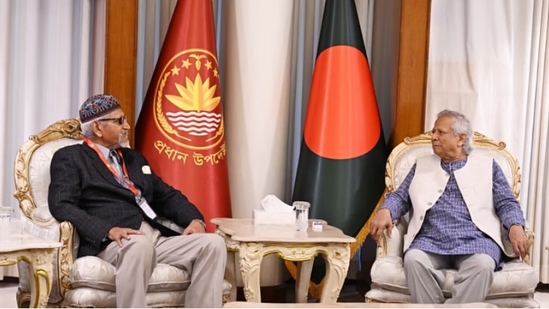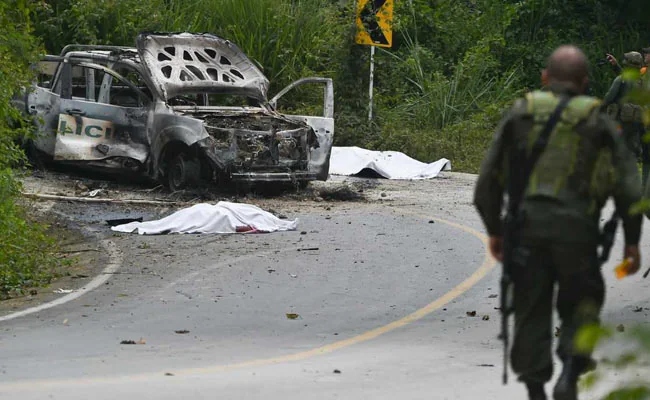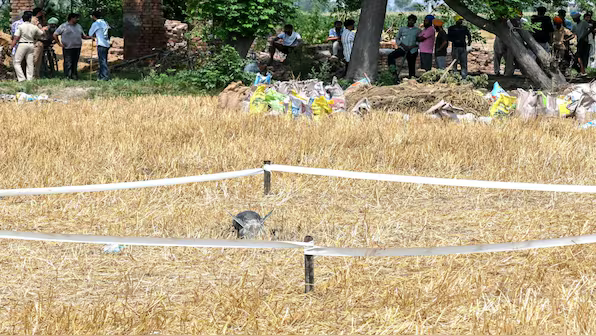In a development that has stunned geopolitical analysts and triggered a diplomatic whirlwind, a retired Bangladeshi major general and key aide to interim Bangladeshi head of state Muhammad Yunus, has ignited a firestorm by suggesting that Bangladesh should consider occupying India’s seven northeastern states in the event of an Indian offensive against Pakistan.
The statement, posted on social media by ALM Fazlur Rahman, a former military officer and current chairperson of the National Independent Investigation Commission in Bangladesh, comes in the volatile aftermath of the April 22 terror attack in Pahalgam, Jammu and Kashmir. The attack killed 26 civilians and injured dozens more, drawing widespread condemnation and sharp rebukes aimed at Pakistan. While the global community was still reacting to U.S. Vice President JD Vance’s stern warning to Islamabad to cooperate with India, Rahman’s inflammatory remarks have shifted attention to a new front: Dhaka.
The Facebook Post That Sparked Diplomatic Fire
In his now-viral Facebook post, ALM Fazlur Rahman stated, “If India attacks Pakistan, Bangladesh should seize the opportunity to occupy the seven northeastern states.” He further called for initiating military cooperation with China, suggesting that such a move could serve as a strategic counterweight to India’s growing dominance in the region.
While Rahman no longer holds an official military post, his proximity to Yunus and leadership of an important commission has magnified the impact of his remarks. This is particularly significant considering Bangladesh’s recent pivot toward reshaping its foreign policy post-Sheikh Hasina.
The Indian Ministry of External Affairs has not yet officially responded to the statement, but sources confirm that backchannel communications have already been initiated between New Delhi and Dhaka to seek clarification.
7 Northeastern States: The Strategic Prize Mentioned
The “seven states” mentioned by Rahman—Arunachal Pradesh, Assam, Manipur, Meghalaya, Mizoram, Nagaland, and Tripura—are geopolitically sensitive and ethnically diverse regions often referred to as India’s ‘Seven Sisters.’ Bordered by China, Myanmar, Bhutan, and Bangladesh, these states have long been a strategic focus for Indian defense and development initiatives.
Any suggestion of foreign interference or territorial ambition in this region is treated with utmost seriousness by Indian policymakers and defense strategists. The northeastern corridor also acts as a land bridge to Southeast Asia, part of India’s “Act East” policy, making Rahman’s threat both symbolic and strategically provocative.
Bangladesh’s Balancing Act: Between Pakistan and India
Since the installation of the interim government led by Muhammad Yunus earlier this year, Dhaka has been attempting to recalibrate its regional alliances. While traditionally aligned with India under the leadership of Sheikh Hasina, Yunus’s administration has shown signs of warming ties with Pakistan. Multiple sources indicate that talks are underway to restore diplomatic relations and explore trade possibilities that were largely frozen for over a decade.
Rahman’s statement appears to reflect this strategic realignment. But it also risks undoing decades of trust between India and Bangladesh, especially at a time when communal tensions, minority safety concerns, and cross-border insurgencies are back in the spotlight.
India Reacts: Silence on the Surface, Concern Behind the Scenes
Though the Indian government has not issued a formal condemnation of Rahman’s post, senior officials speaking off the record revealed that the matter is being closely monitored. According to an internal memo from the Ministry of Home Affairs, the northeastern states have been placed on heightened alert, with surveillance along the India-Bangladesh border being intensified.
A retired Indian intelligence officer called the comments “reckless,” adding, “Statements like these don’t happen in a vacuum. They serve either as trial balloons or veiled threats. Either way, we’re treating it seriously.”
China’s Shadow: The Mention of a Joint Military Arrangement
Perhaps even more troubling than the territorial reference was Rahman’s call for a military alliance with China. In the post, he claimed that such an arrangement could help “reshape the South Asian power structure.” This echoes long-standing fears within Indian strategic circles about a potential China-Pakistan-Bangladesh triangle aimed at containing New Delhi’s regional influence.
While China has not responded to Rahman’s remarks, analysts speculate that Beijing would tread cautiously. An open alliance with Bangladesh involving military aggression against India would provoke international backlash and threaten China’s own trade and diplomatic interests in South Asia.
Official Bangladesh Position: Radio Silence
Thus far, the Bangladeshi interim government has neither endorsed nor rejected Rahman’s statements. This silence is being interpreted in various ways. Some believe it indicates tacit approval; others view it as a strategic decision to avoid escalating tensions.
Yunus himself has recently assured Indian Prime Minister Narendra Modi of the safety and security of Hindus and other minorities in Bangladesh, stating that attacks on minorities were more political than communal in nature. In public forums, Yunus has also expressed a desire to strengthen ties with India and rejected notions that Bangladesh would become “another Afghanistan.”
Yet Rahman’s post undermines these diplomatic overtures, casting doubt on the cohesion and clarity of the interim government’s foreign policy direction.
International Community: Watching with Caution
Rahman’s statements have been noted with concern in diplomatic circles across Washington, Brussels, and Tokyo. While no country has yet issued a formal statement on his remarks, multiple embassies in Dhaka are reportedly seeking clarity on whether Rahman’s post reflects official government thinking or personal opinion.
The United Nations and regional watchdog groups have urged all South Asian states to refrain from “escalatory rhetoric” and focus on diplomacy in resolving tensions arising from the Pahalgam terror attack.
The Domestic Fallout in Bangladesh
Inside Bangladesh, Rahman’s comments have sparked a wave of criticism and concern. Opposition parties and civil society activists have labeled the remarks “irresponsible” and “dangerous.” Prominent columnist Shamsher Rahman wrote in The Daily Star: “If such views are being floated by high-ranking individuals close to the current administration, we risk alienating our strongest economic partner—India—and inviting unnecessary hostility.”
Meanwhile, student protests have erupted in Dhaka, with demonstrators urging the Yunus government to distance itself from Rahman’s views and reaffirm Bangladesh’s commitment to peaceful diplomacy.
India’s Strategic Options: From Diplomacy to Deterrence
In response to the unfolding situation, India has several tools at its disposal. Diplomatically, it can pressure Dhaka through backchannels and multilateral platforms to rein in rogue elements. Economically, India could re-evaluate trade agreements and infrastructure collaborations with Bangladesh.
Militarily, while outright conflict is highly unlikely, the Indian Army has historically maintained robust presence in the northeastern corridor. Joint military drills with Bhutan, Myanmar, and the U.S. could be expanded as a form of subtle deterrence.
Conclusion: A Dangerous Game with High Stakes
The fallout from the Pahalgam terror attack has already strained India-Pakistan relations to the brink. Now, with Rahman’s incendiary statement, a new dimension of uncertainty has been introduced in South Asia’s fragile geopolitical balance.
Whether ALM Fazlur Rahman’s post represents personal bravado or a calculated message from within the Bangladeshi establishment remains unclear. What is certain, however, is that these seven explosive words—“Bangladesh should occupy the northeastern states”—have sent shockwaves through chancelleries across the region.
For Bangladesh, India, and the broader international community, the need of the hour is not chest-thumping rhetoric but calibrated diplomacy. Because in this high-stakes game, one misstep could ignite a crisis far greater than the one triggered by the Pahalgam tragedy.
To Know more CLICK HERE




















One thought on “7 Explosive Words That Sparked a Storm: Bangladesh General’s ‘Northeast India’ Warning Amid Pahalgam Attack Fallout”